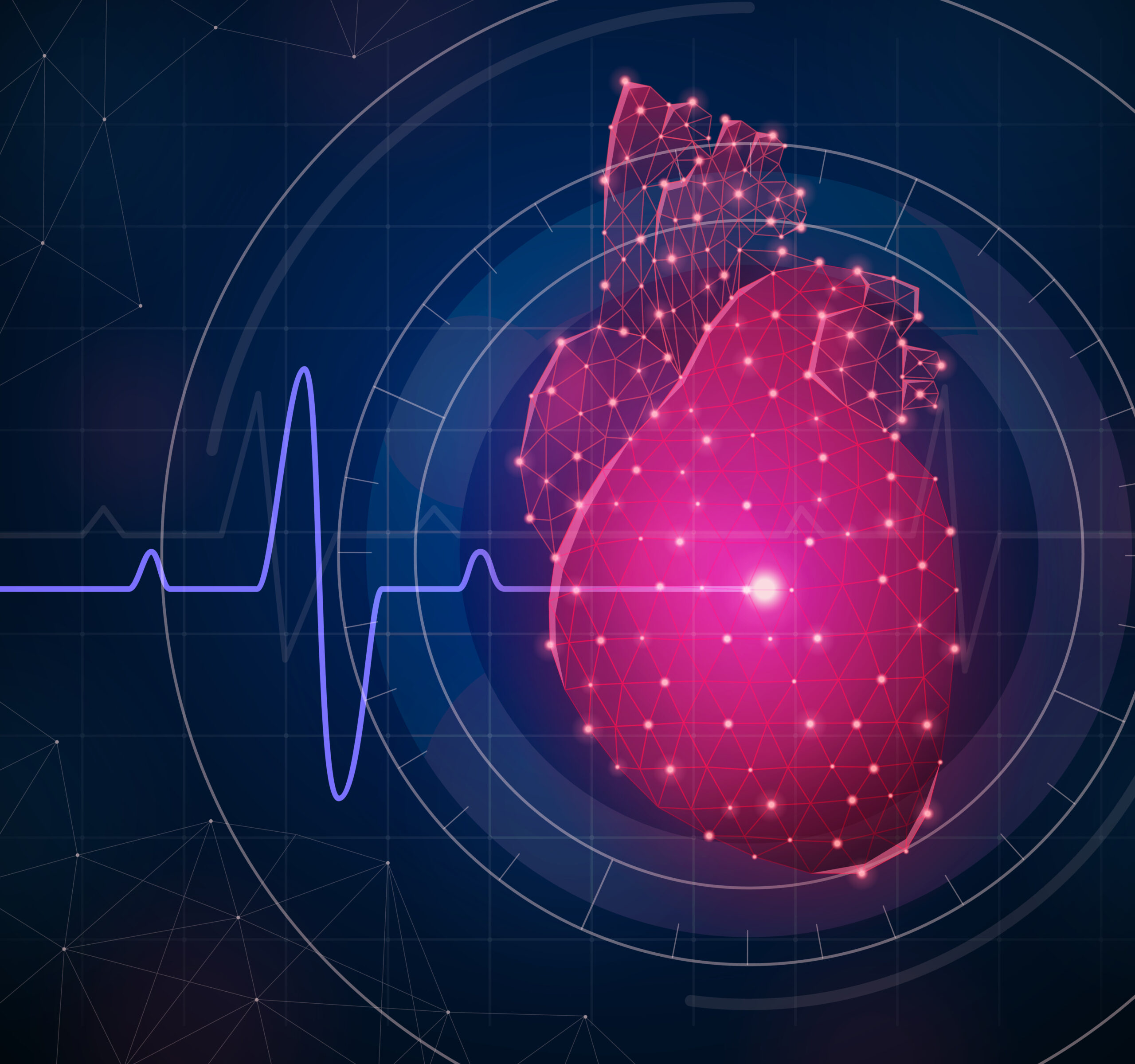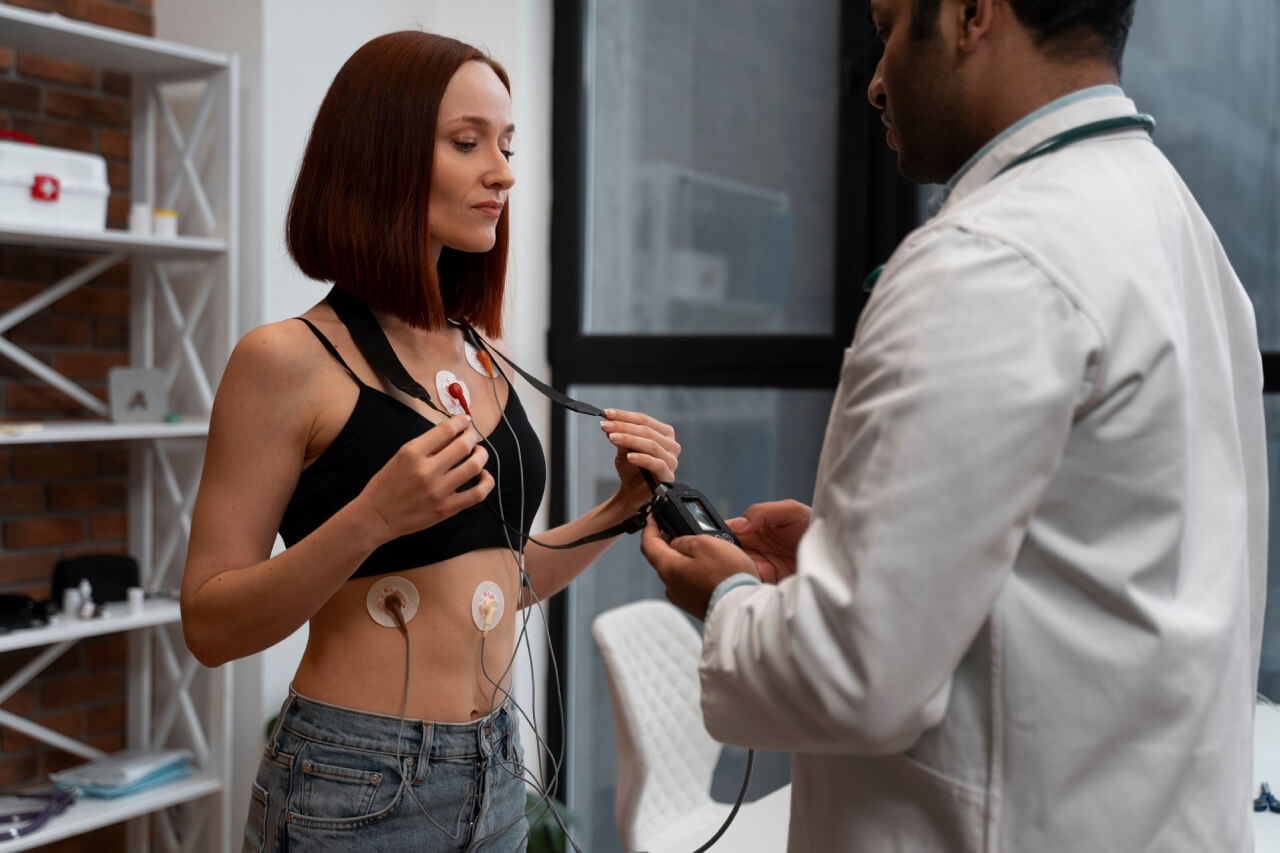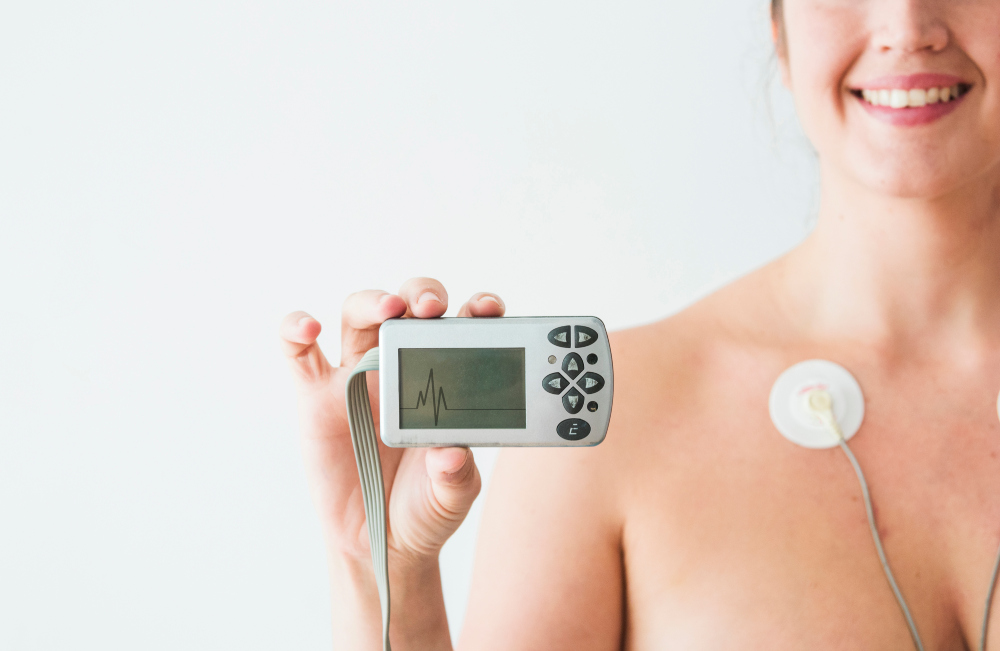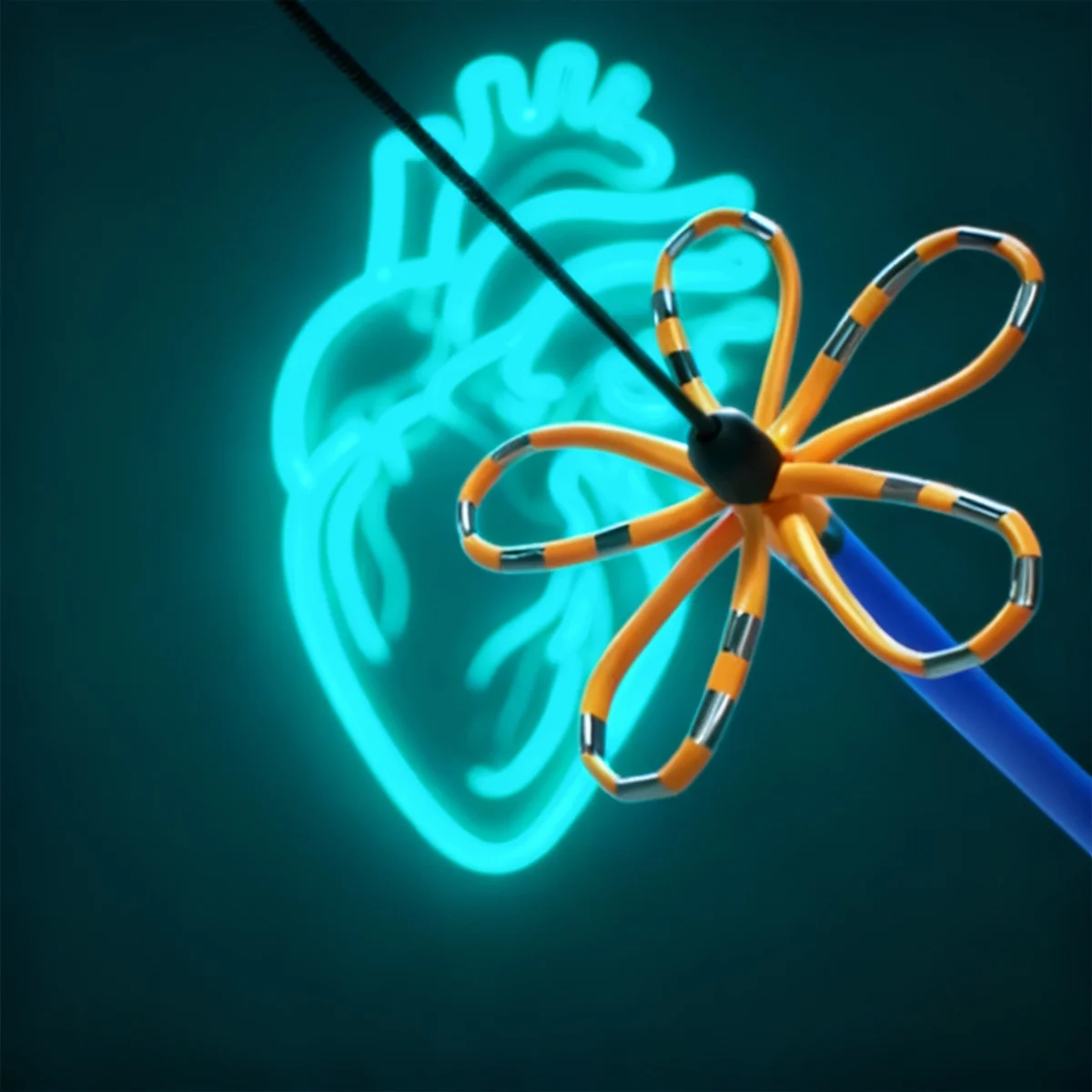What is Atrial Fibrillation?
Atrial fibrillation, also called AFib or AF, is a condition that causes the heart to develop an irregular rhythm (an arrhythmia), often with an abnormally fast heart rate.
Atrial fibrillation is the most common of all heart rhythm problems. Estimates suggest that more than 100,000 people in Ireland have the condition, and the risks of developing it increase as we get older.
Although AFib itself is not usually life-threatening, it’s known to raise the risk of mortality, stroke, heart failure, dementia and other complications. This is why it’s very important to see a specialist who can properly diagnose the condition and explore the best options for treating it.
As one of Dublin’s most experienced cardiologists, Jonathan Lyne is a leading figure in the diagnosis and treatment of atrial fibrillation in Ireland. To book a consultation with him, call 01 690 8350, email the team, or book direct on our website.
Atrial Fibrillation: Understanding the Basics
To understand atrial fibrillation, it helps to know a little about how the heart works. The heart contains four chambers: the upper atria and lower ventricles. The atria are where the electrical impulses controlling our heartbeats originate. Normally, these impulses pass smoothly through the atria to the ventricles, creating a resting heart rate of about 60 to 100 beats per minute.
When AFib occurs, however, the electrical signals become random or chaotic. This causes the atria to fibrillate (“fibrillate” means quiver). The heart begins to beat randomly, and the ventricles can’t pump blood so efficiently around the body. A heartbeat with atrial fibrillation can range from 100 to 175 beats per minute (though AFib sometimes causes the heart to beat too slowly, too).
Atrial fibrillation can affect adults of all ages. But it’s more common as people get older and, overall, more men develop AFib than women. The risk of developing AFib also rises if you have certain heart conditions, such as hypertension (high blood pressure) or coronary heart disease.
Atrial Fibrillation Causes
It’s often difficult to say what causes a patient to develop atrial fibrillation in the first place, but the most likely reason is earlier damage to the heart. This can be caused by heart-related problems like:
- Hypertension (high blood pressure)
- Congenital heart disease (a problem people are born with)
- Heart valve disease
- Cardiomyopathy (a disease affecting the heart muscle)
- Pericarditis (inflammation of the lining around the heart)
- Atherosclerosis (narrowing of the arteries)
- Sick sinus syndrome (a problem with the heart’s natural pacemaker)
AFib can occur alongside other conditions outside the heart, such as diabetes, sleep apnoea, asthma, or an overactive thyroid gland. It’s sometimes also associated with diseases like pneumonia, COPD (chronic obstructive pulmonary disease) and lung cancer.
Certain lifestyle activities and situations can also predispose people to, or act as triggers for, AFib. These include:
- Smoking or using tobacco
- Drinking too much alcohol
- Taking illegal drugs
- Being overweight or obese
That said, AFib can also happen to people without any obvious underlying problems or conditions. Although it’s more common in older people, it can affect younger patients too – and even people who are very healthy and active, including athletes and professional sportspeople.
Atrial Fibrillation Symptoms
One of the problems with atrial fibrillation is that it doesn’t always cause any obvious symptoms. Many people, especially older patients, aren’t aware they have the condition until it’s picked up at a medical appointment for something else (for more about how we diagnose AFib, see Atrial Fibrillation Treatment below).
So what does atrial fibrillation feel like if you do get symptoms? One of the most common symptoms of an irregular heartbeat is palpitation, a feeling that your heart is fluttering or pounding in an unusual way. But AFib can provoke other reactions too. These include:
- Fatigue – a sense that you feel more tired or washed out than usual, or are unable to do activities without feeling exhausted
- Shortness of breath – a feeling of breathlessness, due to a drop in oxygen levels as the heart struggles to pump so efficiently, or possibly by fluid building up in the lungs
- Dizziness – feeling lightheaded or faint when you carry out everyday tasks
- Chest pains – a new feeling of pressure, discomfort or pain in the chest (whether they’re related to AFib or not, chest pains should be treated as a medical emergency)
The symptoms of atrial fibrillation can affect people in several different ways. The main types of AFib include:
- Paroxysmal atrial fibrillation (PAF) – when the irregular rhythm happens for a short period of time – perhaps several hours or a day – before disappearing
- Persistent AF – where the abnormal rhythm remains for a longer period, perhaps a week or more, before disappearing
- Permanent or Long–standing Persistent AF – where the irregular rhythm is present all the time
You can learn more about AFib symptoms in this blog: What are the classic signs of atrial fibrillation?
Atrial Fibrillation Treatment
For most people, atrial fibrillation isn’t a life-threatening condition. But it does need to be taken seriously and many cases will require treatment. One reason is that the reduced pumping efficiency can lead to blood clots forming in the heart; if these get into the bloodstream, they can potentially cause a stroke. AFib symptoms can also feel uncomfortable and worrying.
Before treating atrial fibrillation, it’s important to get a proper diagnosis. Many cases of AFib are first picked up when a doctor or nurse checks a patient’s pulse and notices they have an irregular rhythm.
You can read more about how to check your pulse for AFib in this blog: Why we should all be checking our pulses (and how to do it properly).
They may then refer you for further tests at a specialist clinic – like ours at Heart Rhythm Cardiologist in Dublin. The type of tests you might be asked to have include:
- Electrocardiogram (ECG) – checking the rhythm and rate of your heartbeat using electrical impulses
- Echocardiogram – a test that uses ultrasound to capture images of the heart
- Chest x-ray – a scan to check for lung issues related to AFib
- Blood tests – to check for problems that can be associated with AFib, such as anaemia or an overactive thyroid gland
Once you’ve had a full diagnosis, we can recommend the best course of treatment for you. There are several different ways to treat atrial fibrillation, depending on the type of AFib you have, other conditions you might have alongside it, and factors like your age and general state of health. These include:
- Anticoagulant medicines – drugs that reduce the risk of blood clots and strokes, such as edoxaban, apixaban, dabigatran and rivaroxaban
- Heart-rate medicines – medication that slows down your pulse rate, like beta blockers or calcium channel blockers
- Heart-rhythm medicines – drugs that help the heart return to its natural rhythm (known as sinus rhythm), such as beta blockers or amiodarone
- Cardioversion – a heart procedure that uses electrical energy to restore regular rhythm
- Cardiac ablation – where a cardiologist creates an area of scar tissue inside the heart that stops the irregular impulses that are causing your AFib
Seeing a Doctor for Atrial Fibrillation
If you think you may have AFib, it’s important to get your symptoms checked by a doctor. HSE Ireland advises you to see your GP if you’re experiencing chest pain that comes and goes, if you notice a sudden change in your heartbeat, or if your heart rate is often lower than 60 or higher than 100 beats per minute and you have other AFib symptoms like dizziness. They advise you to call 112 immediately if you have sudden chest pain that:
- spreads to your arms, back, neck or jaw
- makes your chest feel tight or heavy
- also started with shortness of breath, sweating, feeling nauseous or being sick
- lasts more than 15 minutes
AFib Treatment with Dr. Lyne
Concerned about atrial fibrillation, or what comes next if you’ve just been diagnosed with AFib and aren’t sure about the implications? Don’t worry – we’re here to help. Atrial fibrillation is one of the most common reasons why patients come to our clinics here in Dublin.
Dr. Lyne is one of Ireland’s most experienced cardiologists and he specialises in diagnosing and treating all types of AFib. He has also helped to pioneer the introduction of pulsed energy treatment for atrial fibrillation, a cutting-edge procedure that arrived in Ireland in 2023.
If you book a consultation with Dr. Lyne, we’ll make sure you’re seen as soon as possible. He can arrange for you to have tests at our partner hospitals in the Dublin area. He’ll work with you to draw up a treatment plan for your AFib, or book you in for a procedure if you need one.
You can get in touch with Heart Rhythm Cardiologist quickly by phone, email, or booking online.
What is Atrial Fibrillation? FAQs
Q: Who gets atrial fibrillation?
A: Atrial fibrillation (or AFib) can affect adults of all ages, including younger people with very active lifestyles. The risk of developing AFib increases with age: up to seven percent of people over 65 are thought to have the condition. People with hypertension, atherosclerosis and thyroid problems are more likely to develop AFib.
Q: Is atrial fibrillation dangerous?
A: Although the symptoms of atrial fibrillation can be uncomfortable, it isn’t usually life-threatening. But because it can cause the heart to pump less efficiently, AFib can lead to other, more serious complications if left untreated. It also increases the risk of stroke. Most, but not all, cases of AFib require some form of treatment.
Q: How can you tell if you have atrial fibrillation?
A: One way to check for AFib is by taking your pulse: a resting pulse is regular and normally between 60 and 100 beats per minute, whereas a pulse with AFib may be much faster (or, conversely, slower) and may feel irregular. You can find out how to check your pulse in this video from Irish Heart. But it’s important to have the condition fully diagnosed by a doctor or cardiologist.
Q: Can atrial fibrillation be cured?
A: No, it’s not possible to cure atrial fibrillation. But it can be managed and controlled using medication and well-established procedures like ablation and cardioversion. Making certain lifestyle changes (see below) can also have a major impact on the condition.
Q: What should you avoid if you have atrial fibrillation?
A: Certain activities and lifestyle choices can contribute to atrial fibrillation or make it worse. If you have AFib, you should avoid smoking. Eating well, getting daily exercise, limiting alcohol and maintaining a healthy weight can also help to keep the condition under control.






